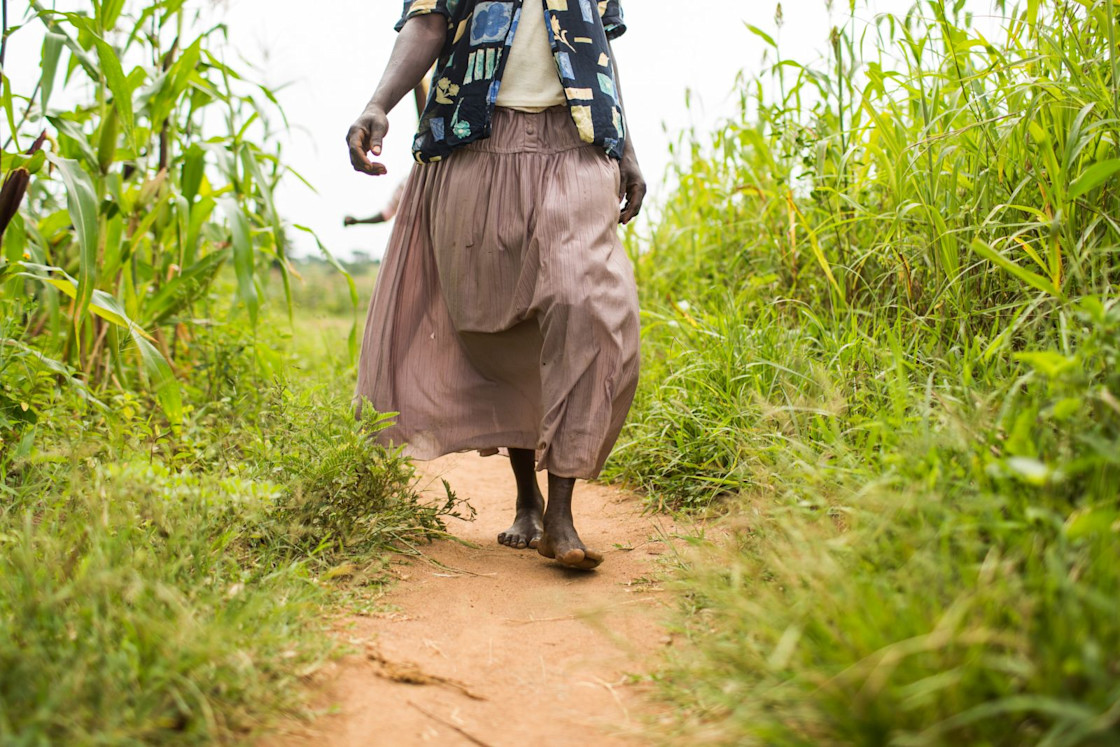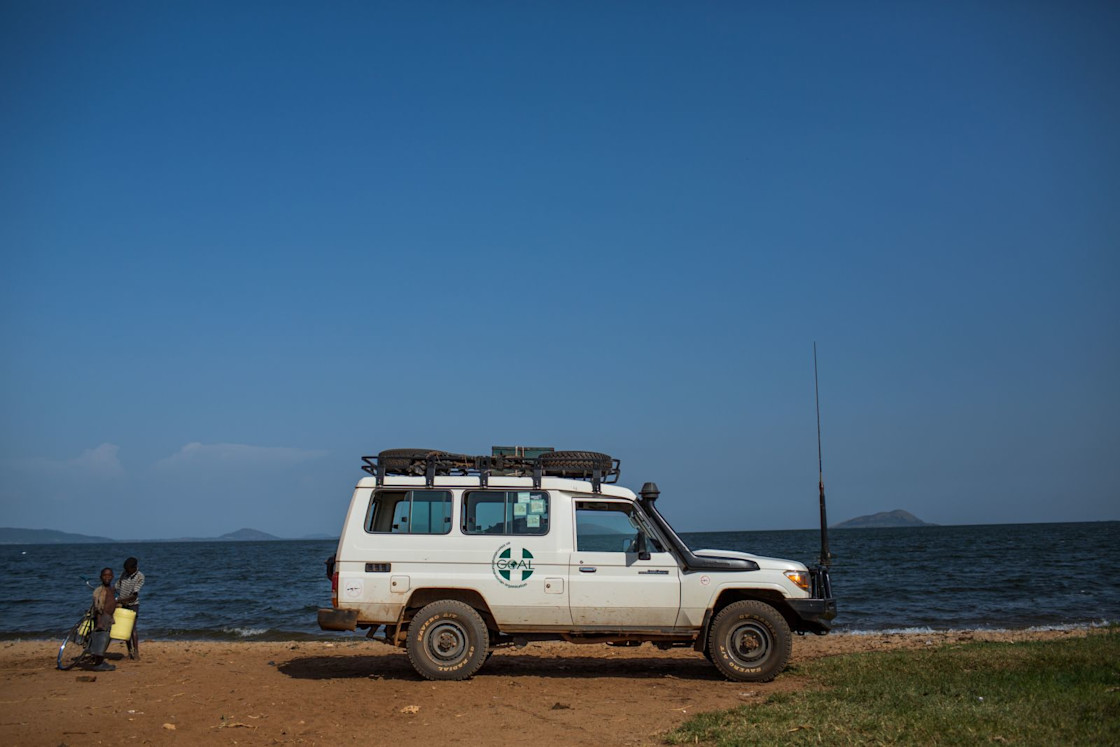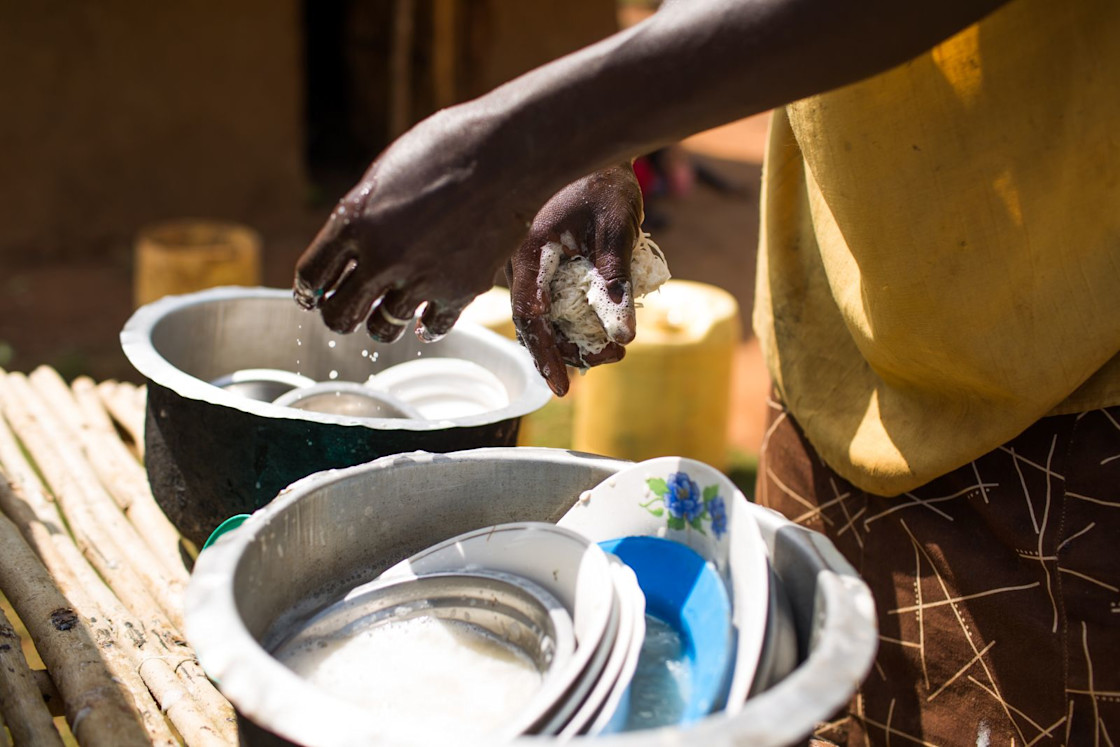We live in a world where people are more likely to have access to a cell phone than a toilet.1 For almost a billion people around the world, the basic human right to sanitation remains dangerously out of reach.
This reality is staggering, but hope is not lost. Thanks to GOAL Uganda and our 52 local partners around the world, things are changing for the better: one family at a time.
Akot Dementeria, an 86-year-old great-grandmother and farmer, has lived in her village of Owino for her entire life. For all of those decades, Akot lived without her own latrine. When possible, she would use her neighbor’s latrine. When the latrine grew too full, Akot and her family would squat in the bush behind their home. It was far from comfortable—or safe—but it was accessible, and this convenience kept Akot from building her family a latrine of their own.
“I did not see the point of digging a latrine because the bush was always there and just near my house and whenever it could rain, water could erode the feces away.”

So for years, this practice continued. And for years, Akot was unaware of the constant danger to her family’s health.
“Over the years, my family, including me, would get sick. I always thought that it was because of what we ate. I would prepare the food well, but still, the situation did not change,” Akot explained. “I used to give my children local herbs to treat the diarrhea. Their symptoms would go for some time but later, come back.”
Every mother desires the best for their children—and Akot is no different. She simply lacked the opportunity to understand how a simple change in her sanitation practices could change their lives. So, sickness continued to frequent their home.
Decades passed, and Akot’s children grew up and started families of their own. Still, Akot continued using the bush behind her house as a makeshift latrine.

Then, GOAL Uganda’s staff started working with her village to become Open Defection Free (ODF). For many organizations like GOAL, a community must reach ODF status before a water project can be funded and built. This rigorous standard ensures that the community members are fully invested in the process, take ownership of their water project, and can prevent their new water source from being contaminated by human toxins. To quickly and effectively teach entire communities the dangers of open defecations, development organizations like GOAL will host “community triggering” events to shift public perspective.
Ms. Akot attended her community’s triggering session and was moved by the message. She quickly promised to build a latrine, stop going to the bush, and act as an example for the rest to emulate.
“People from GOAL and the government came here to teach us why we should keep our homes clean and should dispose of our fecal waste in a latrine only. This message reached me. I decided that, even at my age, I can do something,” she resolved.
Akot even built a drying stand for her dishes.
“This is better than what I had before. I used to put my cups and plates in my kitchen on the floor. Now, I can be sure that they are clean.”

With a little help from her neighbors, Akot began the arduous work of digging her own latrine.
“It was quite the process, but I am happy that it is finished. This is much better than what I was doing before.”
Her dedication did not go unnoticed. Akot was recognized at Owino’s Open Defecation Free Celebrations. She was hailed as a model to other community members to follow her example and improve their hygiene and sanitation.
But the change in her well-being was rewarding enough.
“I want to thank GOAL for the knowledge they brought to my community. I now know how to keep my home clean and with my new latrine, I will stop using the bush.”
As a mother, grandmother, and great-grandmother, Akot already had a legacy to be proud of. Now, she’ll also be remembered for inspiring her community to change their own lives for the better. Akot chose to reshape the future instead of clinging to the past—even at 86 years old.
We can all learn from her example.
Someone’s potential isn’t determined by their age or ability. It’s not limited to a certain country or background. It’s ever-present and often waits—even for decades—to be unleashed at the first sign of opportunity.

Often, access to clean water and sanitation is the catalyst for that opportunity. The results can be as widescale as a village receiving electricity or a paved road for the first time because residents finally have the time to grow their businesses and draw in travelers from major cities. It can be as personal as a child dreaming bigger than ever before. Regardless, it’s essential in order for people in rural communities to become who they were always meant to be.
It’s true for moms in Mozambique.
Students in Nepal.
Great-grandmothers in Uganda.
Where clean water goes, potential thrives.
That’s the power of clean water. And that’s the power of your generosity.
It’s not too late to change more lives like Akot’s.
As a member of The Spring, you’ll bring opportunity to rural communities every single month. You’ll give clean water, sanitation, hygiene, and education to the people who need it most: and in doing so, empower them to change their own lives for the better. Choose transformation. Join The Spring.

